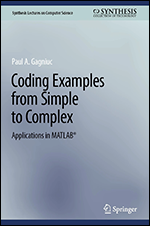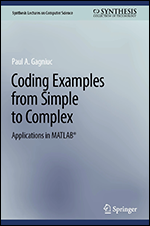ML Algorithms: Multivariate Calculation & Algorithms
Machine Learning
| Intermediate
- 10 videos | 38m 56s
- Includes Assessment
- Earns a Badge
Learners can explore the role of multivariate calculus in machine learning (ML), and how to apply math to data science, ML, and deep learning, in this 10-video course examining several ML algorithms, and showing how to identify different types of variables. First, learners will observe how to implement multivariate calculus, derive function representations of calculus, and utilize differentiation and linear algebra to optimize ML algorithms. Next, you will examine how to use advanced calculus and discrete optimization, to implement robust, and high-performance ML applications. Then you will learn to use R and Python to implement multivariate calculus for ML and data science. You will learn about partial differentiation, and its application on vector calculus and differential geometry, and the use of product rule and chain rule. You will examine the role of linear algebra in ML, and learn to classify the techniques of optimization by using gradient and Jacobian matrix. Finally, you will explore Taylor's theorem and the conditions for local minimum.
WHAT YOU WILL LEARN
-
Recognize the role of multivariate calculus in machine learningDescribe functions in calculusDefine the concepts of gradient and derivative and describe their applications on the functions of variablesList the capabilities of the product and chain rulesDefine partial differentiation and its application in vector calculus and differential geometry
-
Recognize the importance of linear algebra in machine learningDescribe optimization techniques when using gradient and jacobian matrixDefine taylor's theorem and specify the conditions for local minimaList various multivariate operations that can be used in multivariate calculus, compare the differences between a gradient and derivative, recall examples of partial differential equation, and specify the domains where linear algebra is implemented
IN THIS COURSE
-
1m 51s
-
3m 48sUpon completion of this video, you will be able to recognize the role of multivariate calculus in machine learning. FREE ACCESS
-
3. Function Representation3m 9sAfter completing this video, you will be able to describe functions in calculus. FREE ACCESS
-
4. Gradient and Derivative4m 7sIn this video, you will learn how to define the concepts of gradient and derivative and describe their applications on functions of variables. FREE ACCESS
-
5. Product and Chain Rule4m 13sUpon completion of this video, you will be able to list the capabilities of the product and chain rules. FREE ACCESS
-
6. Partial Differentiation4m 57sLearn how to define partial differentiation and its applications in vector calculus and differential geometry. FREE ACCESS
-
7. Linear Algebra6m 20sAfter completing this video, you will be able to recognize the importance of linear algebra in machine learning. FREE ACCESS
-
8. Gradient and Jacobian Matrix2m 42sAfter completing this video, you will be able to describe optimization techniques when using the Gradient and Jacobian matrix. FREE ACCESS
-
9. Taylor's Theorem and Local Minima6m 4sFind out how to define Taylor's theorem and specify the conditions for local minima. FREE ACCESS
-
10. Exercise: Multivariate Operations for Calculus1m 46sUpon completion of this video, you will be able to list various multivariate operations that can be used in multivariate calculus, compare the differences between a gradient and derivative, recall examples of partial differential equations, and specify the domains where linear algebra is implemented. FREE ACCESS
EARN A DIGITAL BADGE WHEN YOU COMPLETE THIS COURSE
Skillsoft is providing you the opportunity to earn a digital badge upon successful completion on some of our courses, which can be shared on any social network or business platform.
Digital badges are yours to keep, forever.






